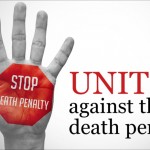America is in the process of tumbling: she has one party interested only in “remaking” America with or without the constitution’s guidance; it is a party become so expert at political maneuvering that it no longer believes it actually has to lead, build consensus or compromise — ever — and another party that can’t manage to stick a post into a hole and call it a goal. The Democrats and Republicans remind me of nothing so much as Jules and Brett in Pulp Fiction — the Democrats alternately sly and furious, charming then terrifying, and the doomed and pathetic GOP surrendering its Big Kahuna Burger and stuttering “what? What?” until it gets shot, and then shot again. From all sides. (Language warning for that link; you’re warned)
Washington is broken because the process is broken, and the process is broken because the idiots we keep sending to “represent” us are easily broken by power, rank, privilege and the lure of the lobbyists.
And the reason these idiots are easily broken by all of that is because spiritually, we are adrift, unmoored to the values and priorities that should keep us from falling into these worldly traps. And we don’t even rightly understand how we identify ourselves or each other, anymore; we are therefore supremely disoriented.
So here is Rusty Reno, today, at First Things, concluding that the so-called “liberals” have lost their liberality and fallen into narrow parochialism: (something we saw, I think, when Sarah Palin emerged in 2008 and some sneered that she “had never traveled out of the country” in such unison that you realized they were only talking to each other and had developed their own narrow view of what constituted wisdom.)
We’ve all experienced the liberal default to denunciation. Reservations about radical feminism? “Patriarchal.” Criticize multicultural lunacy? “Cultural imperialist.” Question affirmative action? “Racist.” Opposed to same-sex marriage? “Homophobic” or “heterosexist.” Worried that increased taxation will stifle economic growth? “Protecting the rich” and “indifferent to the poor.” The message is that anyone who questions liberal policies is either a bigot or out for himself, and probably both.
The decline of religiosity among liberal elites in recent decades has accentuated this parochialism. During the debates leading up to the revision of the general-education requirements at Harvard, some genuinely liberal faculty members proposed a required course on reason and faith, observing that students need to understand the religious ways in which the vast majority of human beings have and still think about First Things.
But it was not to be. Secular jihadist Steven Pinker insisted that faith “has no place in anything but a religious institution.” Concern for faith and its influential role in society “is an American anachronism,” and “the rest of the West is moving beyond it.” In other words, the Smart People who run the world needn’t waste their time with the beliefs that govern the lives of most of the folks who actually live in the world.
You’ll want to read the whole thing, and then perhaps consider it in light of this column by Chaput that First Things has just gone live with, where the bishop writes:
A new kind of America is emerging in the early 21st century, and it’s likely to be much less friendly to religious faith than anything in the nation’s past. That has implications for every aspect of Catholic social ministry. . . .communities, and especially religious communities, have a great deal of power in shaping attitudes and behavior. Churches are one of the mediating institutions, along with voluntary associations, fraternal organizations, and especially the family, that stand between the power of the state and the weakness of individuals. They’re crucial to the “ecology” of American life as we have traditionally understood it.
And that’s why, if you dislike religion or resent the Catholic Church, or just want to reshape American life into some new kind of experiment, you need to use the state to break the influence of the Church and her ministries.
In the years ahead, we’re going to see more and more attempts by civil authority to interfere in the life of believing communities. We’ll also see less and less unchallenged space for religious institutions to carry out their work in the public square.
I think this piece by Chaput will surprise many, particularly perhaps our more-progressive friends, by what commenter jkm referrerd to in another thread as his “extreme centrism”
Chaput’s piece actually fleshes out my meaning in my own piece at First Things, where I wrote:
Perhaps sometime in the not-too-distant future, as governments move against her, the Church will be forced into poverty and become subject to the oppression of her earlier days. We may even see martyrs in the Western Church, once more . . . The nation may tumble; nations always do, in the end, when America tumbles, the Roman Catholic Church may very well see itself superseded by a government-friendly “American Catholic Church” that marginalizes the Roman church and even sends it underground.
The nation is tumbling. The leadership vacuum is so profound that if ever there was an opportunity to talk third party, this might be it.
But don’t fool yourself; the risk is enormous — the Democrats still own the press, and the press still matters. To lose is to install Obamanomics in all its forms.
But to win, well — don’t fool yourself there, either; you’re still not going to get the America of your youth back; the narrative thrust is always relentlessly forward, and the attacks on the churches will not relent, they will move forward too.
It’s really just a question of speed.
Related: Bachmann, the Anti-Christ and the Political Theologian
Also: Are conservative churches going “radical”?
UPDATE: And from Jack Smith:
In his July 17 blog post, Deacon Keith Fournier of Catholic Online lamented the silence of the U.S. and other western governments about these abuses against human rights and religious freedom in China. “We should ask ourselves the following question; with our growing economic reliance and dependence upon the Regime in China: Are we sacrificing our fundamental obligation to defend human freedom and human rights because we depend on the economic assistance of a repressive regime?”
At one time we might have insisted that China’s desires to be accepted and welcomed as a partner with the West must be met by an insistence that it respects this fundamental human right of religious expression and organization. Now we must be careful that our need to come, hat in hand, to China in the economic sphere doesn’t require us to be silent about such significant restraints on human dignity.











